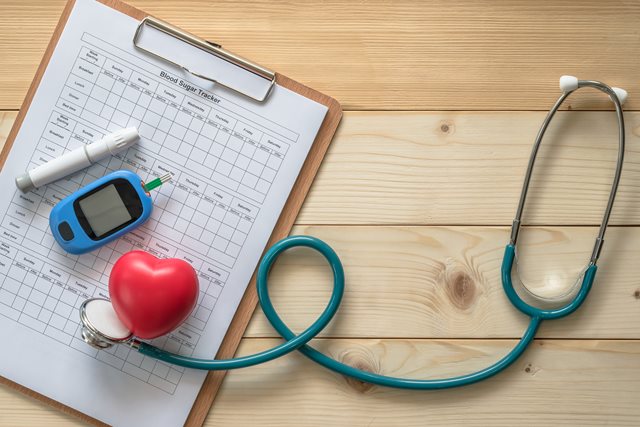Who:
Dr. Alanna Weisman, endocrinologist, Mount Sinai’s Leadership Sinai Centre for Diabetes, Toronto
Research highlights/discoveries:
• Working to achieve equitable access to diabetes technologies for all people with type 1 diabetes
Dr. Alanna Weisman at a glance:
• Awarded Emerging Clinician Research Award from JDRF Canada (2023)
• Received End Diabetes 2022 Award from Diabetes Canada (2022-2025)
• Received Banting & Best Diabetes Centre New Investigator Award (2020–2022)
• Appointed assistant professor, Division of Endocrinology, University of Toronto (2020)
• Completed PhD in clinical epidemiology and health care research, University of Toronto (2020)
How did you get involved in diabetes research?
I was initially interested in cardiology, but I worked with an endocrinologist during my early clinical rotations who helped me see the value of spending time with patients in a clinic setting to develop longer-term relationships. I also knew I wanted to have a career in research. Type 1 diabetes appealed to me because I noticed that these patients had unique challenges and I wanted to be part of helping overcome them. Unlike type 2 diabetes, type 1 diabetes is treated almost exclusively with insulin and requires multiple doses of insulin per day, which is a heavy load to bear.
What have you discovered so far?
This is an issue for people with type 1 in many countries. Previous research has shown that technologies such as insulin pumps and continuous glucose monitors help people with type 1 diabetes, yet our research showed that access to these technologies varied across the country. Not surprisingly, we found that these technologies were more commonly used in areas where their use was funded, either publicly or privately. But we also found that even if there was no financial barrier, those with lower socioeconomic status were using these technologies less.
My team and I started off looking at whether people with type 1 diabetes in Canada were regularly meeting the recommended blood sugar (glucose) targets and only 25 per cent were.
What is your current research looking at?
Over the next three years, thanks to funding from Diabetes Canada, we want to better measure inequities in the use of diabetes technologies among people with type 1 diabetes in Ontario and Quebec—and then find solutions to improve access. In this first phase, we are using a large healthcare database to determine who uses technologies such as insulin pumps, continuous glucose monitors and automated insulin delivery systems. Then we’ll interview people with type 1 diabetes—as well as endocrinologists and diabetes educators—to get their perspectives on what makes these technologies less accessible. In the third phase, we’ll design some strategies, with the help of patients living with type 1 diabetes, to address barriers to access.
What do you think those barriers are?
We are still doing research at this point, but data from other countries has shown that there are sometimes biases among healthcare providers in recommending who would benefit from a technology. However, we expect our research to show multiple factors that are making access challenging. And we hope to get insights about how we can make type 1 diabetes easier to manage.
Once the strategies are developed, what are the next steps?
The goal is to be able to implement changes to the healthcare system and in clinics that would allow for more equitable use of these technologies, and ultimately lead to better health outcomes for people with type 1 diabetes.
You also enjoy writing about your research. Tell us more.
Writing is probably an under-recognized skill that is really important as a researcher. In order for your research to have an impact, it needs to be clearly communicated. So far, I’ve published more than 30 primary research articles in peer-reviewed journals, and I look forward to sharing more about this project once it’s completed.
The last word
"We know that devices such as insulin pumps and continuous glucose monitors lead to better health outcomes for people living with diabetes, but these technologies still remain out of reach for so many. Diabetes Canada actively advocates for improved access to devices across the country and so we’re especially proud to fund research like Dr. Weisman’s. She is tackling health inequities head-on to better understand how we can collectively change this reality,” says Laura Syron, president and CEO of Diabetes Canada.
Did you know?
Medications, devices and supplies may not be fully covered for people with diabetes, even under a private drug plan. Help us fund research like that of Dr. Weisman which can help improve access and improve health outcomes. Donate now. #LetsEndDiabetes
Related Content

Research
Read about the research projects and awards funded by Diabetes Canada.
About research About Research
Tools and resources
Take charge of your health with tools and resources from Diabetes Canada.
Get started About Tools and resources
Recently diagnosed?
What you need to know about managing diabetes.
Read more About Recently diagnosed?